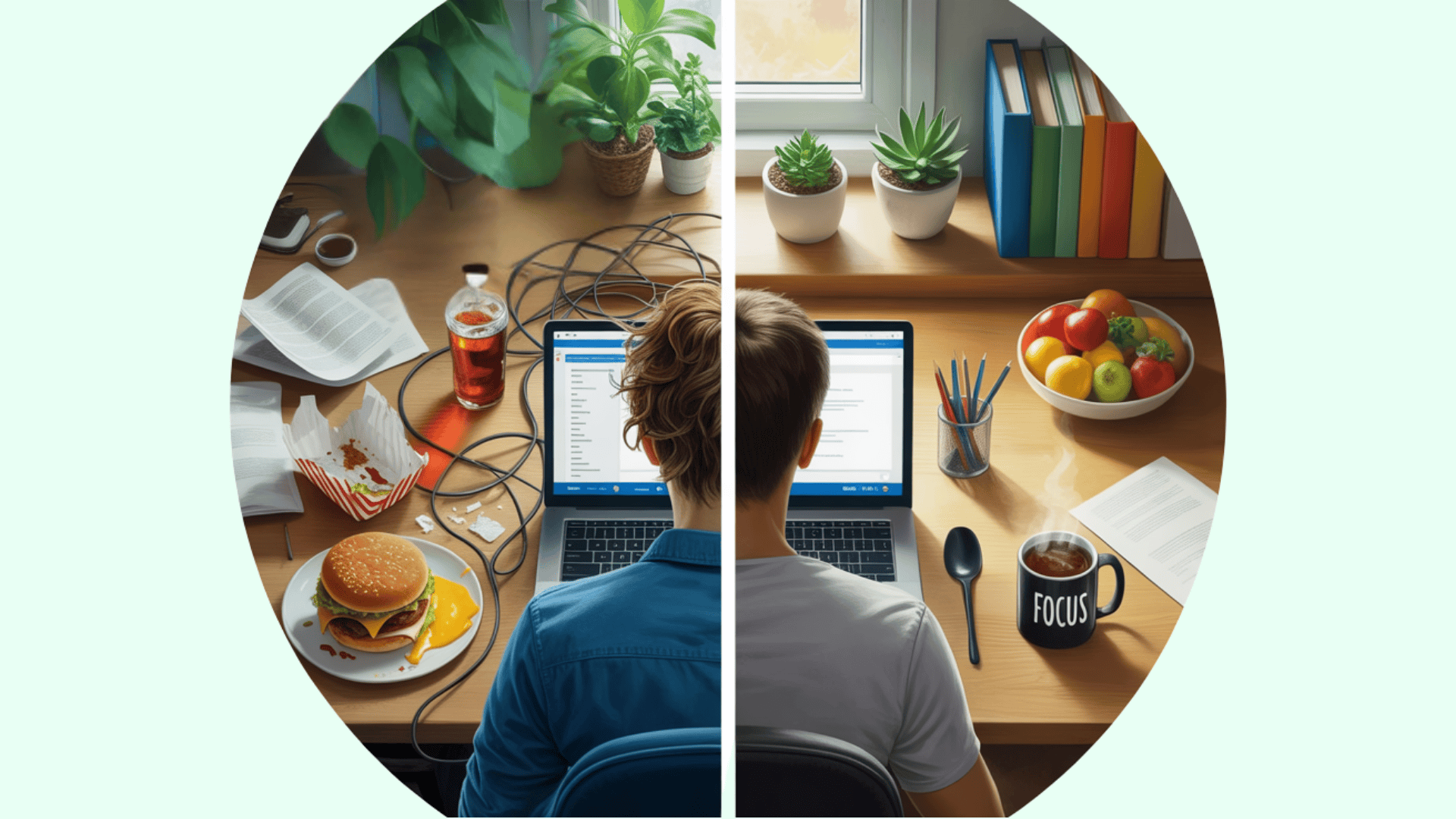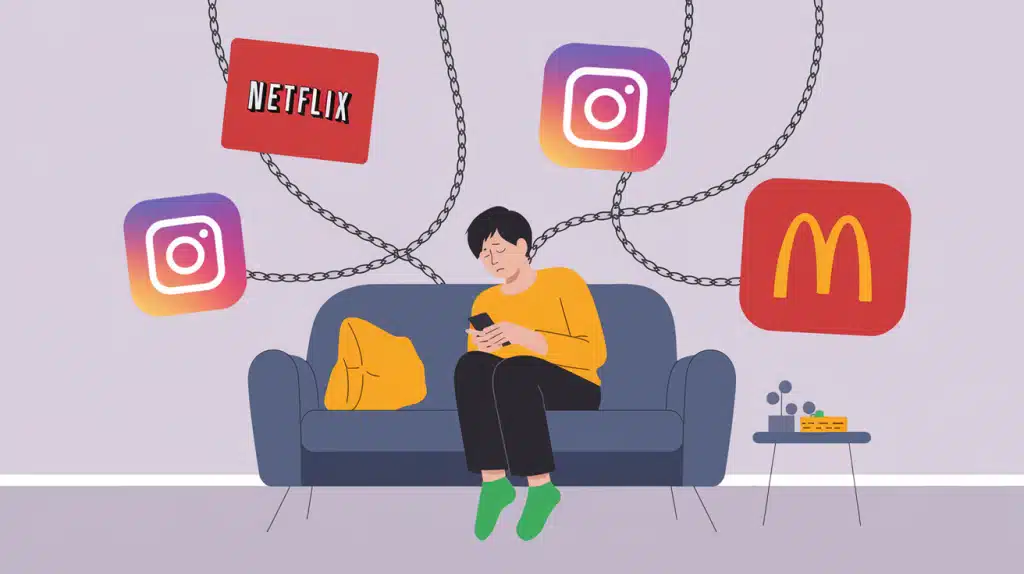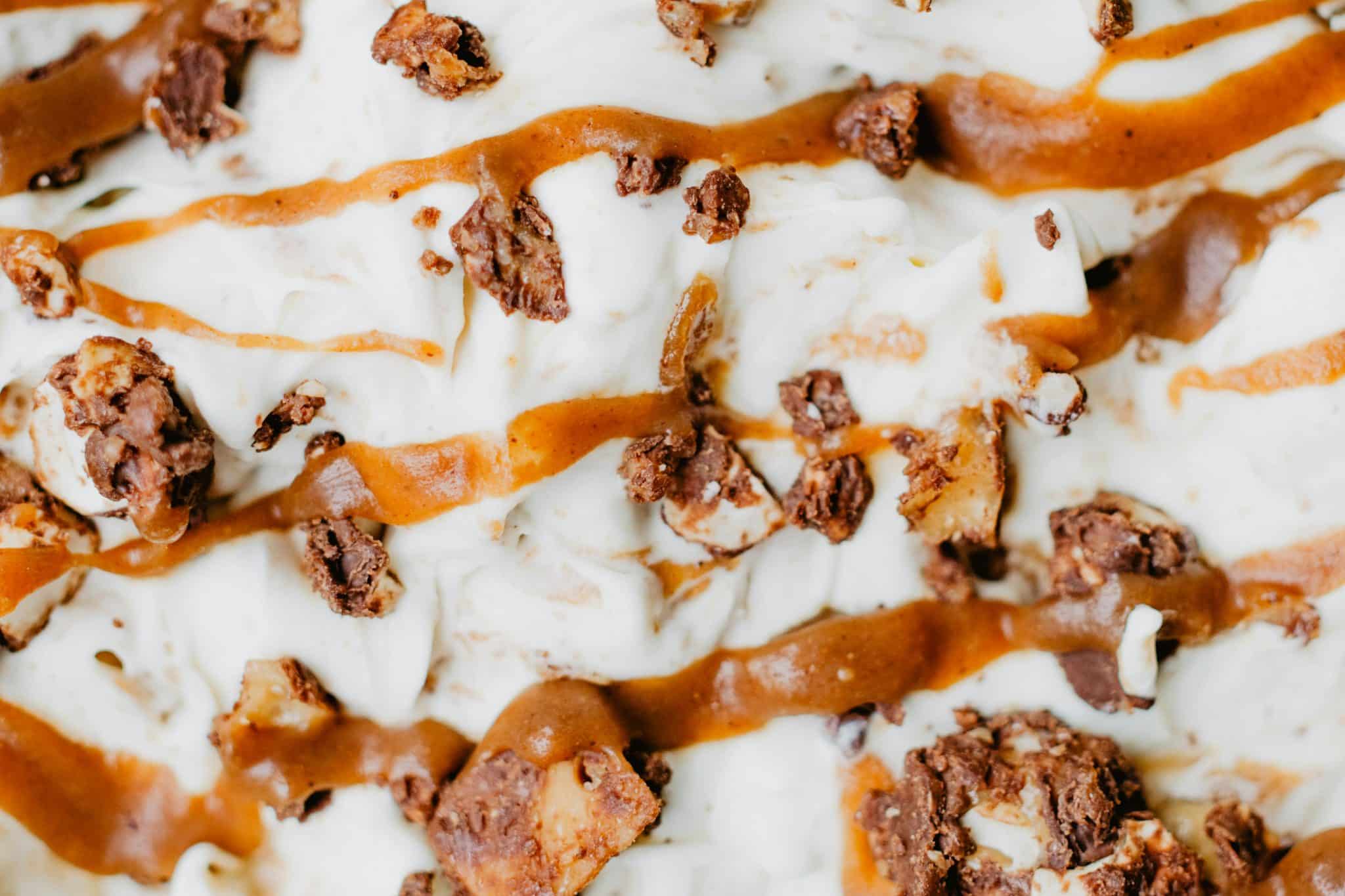Have you ever binge-watched a show until 3 AM? Or copied a celebrity’s diet after seeing it trending online?
You’re not alone. Pop culture influences how we sleep, eat, exercise, and use our devices in ways we often overlook.
From Netflix’s autoplay feature keeping us up late to fitness influencers promoting extreme workouts, entertainment media quietly control our daily routines.
The problem? Many of these influences harm our health and well-being. But here’s the good news: once you understand how pop culture rewires your habits, you can take back control.
In this blog, I’ll show you exactly how entertainment media affects your daily routines and give you practical, science-backed strategies to build healthier habits that actually stick.
How Pop Culture Rewires Daily Habits?
Pop culture doesn’t just entertain – it actively reshapes your behavior through psychological triggers. Entertainment companies spend millions studying how to capture your attention and create habits that keep you engaged longer than intended.
Key ways pop culture controls your routine:
- Autoplay features trigger “momentum viewing”
- Celebrity endorsements influence your lifestyle choices
- Social media algorithms keep you scrolling for hours
- Fitness influencers promote unrealistic standards
- Product placement affects purchasing decisions
- FOMO marketing creates urgency around trends
How Pop Culture Rewires These 6 Daily Habits

Let’s examine the specific ways entertainment media manipulates your most important daily routines, and what you can do about it.
1. Sleep Patterns
Netflix engineers its platform to keep you watching past bedtime using behavioral psychology.
The autoplay feature gives you just 15 seconds to stop, while blue light blocks melatonin and exciting content raises cortisol when you should be winding down.
- Set viewing timers on streaming platforms before you start watching
- Enable “do not disturb” mode 2 hours before your target bedtime
- Keep all devices outside the bedroom overnight
- Use traditional alarm clocks instead of phone alarms
- Create a 15-30 minute reading routine before sleep
- Switch to warm lighting after sunset to signal bedtime to your brain
2. Eating Habits
Social media influencers promote new diets weekly, but most lack scientific backing and can create unrealistic expectations and perfectionist mindsets. Juice cleanses cause muscle loss, extreme restrictions lead to binge cycles, and expensive “detox” products do nothing your liver doesn’t already handle naturally.
- Fill half your plate with vegetables for higher nutrients and natural portion control
- Eat every 3-4 hours to stabilize blood sugar and hunger cues
- Cook at home more often to control ingredients and portions
- Plan meals weekly on Sunday to avoid impulse food choices
- Wait 24 hours before trying any new diet trend you see online
- Focus on sustainable changes rather than dramatic restrictions
3. Exercise Habits
Instagram’s fitness culture promotes unrealistic standards, leading to burnout, injuries, and guilt within weeks. Perfect bodies and extreme workouts create unrealistic expectations, while health experts actually recommend just 150 minutes of moderate activity per week.
- Aim for 20-30 minutes of daily movement instead of intense hour-long workouts
- Include strength training twice per week using simple bodyweight exercises
- Take rest days to prevent injury and allow muscle recovery
- Track energy levels and daily function rather than just weight loss
- Find physical activities you genuinely enjoy instead of forcing workouts you hate
- Start where you are now, not where you think you should be
4. Screen Time
The average person checks their phone 96 times daily, rewiring the brain for instant gratification. Your morning phone routine allows external forces to control your mood and priorities, while constant app switching makes focusing on single tasks increasingly difficult.
- Keep phones in another room overnight and use traditional alarm clocks
- Wait at least 30 minutes after waking before checking any messages
- Use built-in app timers to limit social media usage to specific time blocks
- Create phone-free zones in your home, starting with dining areas and bedrooms
- Stop all device use one hour before your target bedtime
- Schedule specific times for checking messages instead of constant monitoring
5. Shopping Habits
Product placement in movies and shows influences buying decisions more than traditional ads, creating subconscious associations with brands. Influencer marketing bypasses your natural advertising resistance by looking like genuine recommendations rather than sponsored content.
- Wait 24-48 hours before making any non-essential purchases
- Ask yourself if you wanted this item before seeing it promoted online
- Create monthly budgets that separate wants from actual needs
- Unfollow social media accounts that constantly promote products
- Consider if you can afford purchases without affecting financial goals
- Shop with a list and stick to it to avoid impulse buying
6. Social Comparison
Social media shows curated highlight reels that create unrealistic expectations about relationships, career success, and lifestyle standards. Constant exposure to others’ “perfect” moments can make you feel inadequate and influence major life decisions based on what appears good online.
- Limit total social media usage to 30 minutes maximum per day
- Unfollow accounts that consistently make you feel inadequate or unsuccessful
- Focus on your own progress and growth rather than others’ highlight reels
- Practice daily gratitude for what you currently have in your life
- Remember that social media shows edited, filtered versions of reality
- Stop documenting every experience and start actually enjoying moments
Pop Culture vs Real Life: The Truth Behind Common Beliefs
See how entertainment media creates false expectations about normal life and healthy habits.
| Pop Culture Shows | Reality Check | Why This Matters |
|---|---|---|
| People wake up looking perfect | Most need 30+ minutes to feel ready | Creates unrealistic morning expectations |
| Meals are always Instagram-worthy | Real food is often simple and messy | Leads to food guilt and perfectionism |
| Everyone has time for 2-hour workouts | Most people have 20-30 minutes max | Creates exercise avoidance |
| Homes are always spotless | Real homes have clutter and mess | Increases stress about living spaces |
| People respond to texts instantly | Healthy boundaries include delayed responses | Creates communication anxiety |
Your 4-Week Habit Reset Plan

Ready to take back control? Here’s a simple, week-by-week approach to break free from the influence of pop culture on your daily routine.
Week 1: Sleep Foundation First
Everything starts with better sleep. Establish a consistent bedtime and keep screens out of your bedroom. Start a 15-minute reading routine before bed. Don’t tackle other changes yet – focus only on sleep.
Week 2: Add Mindful Eating
Maintain your sleep improvements while making one dietary change. Plan weekend meals on Sunday. Eat without distractions – no phones, TV, or computers during meals. Notice how food actually tastes.
Week 3: Include Daily Movement
Maintain healthy sleep and eating habits while incorporating regular physical activity. Take one 10-minute walk daily, even around your block. Try simple exercises like wall push-ups or chair squats. Find activities you genuinely enjoy.
Week 4: Set Screen Boundaries
With improvements in sleep, eating, and movement, address screen time. Set specific times for checking messages instead of constant monitoring. Practice one device-free activity daily, such as reading, cooking, or engaging in face-to-face conversation.
Evidence-Based Strategies That Actually Work
Breaking free from pop culture’s control requires understanding the psychology behind these influences. Entertainment companies use behavioral science to capture attention, but you can use the same principles to build healthier habits that serve your actual needs.
- Choose the one habit from the list above that affects you most right now
- Implement just one evidence-based fix this week, rather than trying to change everything
- Track your daily progress without aiming for absolute perfection
- Celebrate small wins to build momentum for bigger changes over time
- Be patient, as your brain needs 21-66 days to make new habits automatic
Summing It Up
Pop culture doesn’t have to control your habits anymore.
Understanding how entertainment media affects your sleep, diet, fitness, screen time, shopping habits, and social comparison helps you make informed choices that truly support your well-being.
Start with whichever habit feels most manageable and focus on consistency over perfection. Small changes compound over time to create significant improvements in how you feel and function on a daily basis.
The goal isn’t to eliminate entertainment entirely, but to build habits that serve your real needs rather than artificial lifestyle standards.
Which of these habits feels most urgent for you to change first?
Share your biggest challenge in the comments below. I’d love to help you create a realistic plan that fits your specific lifestyle and current situation!






































